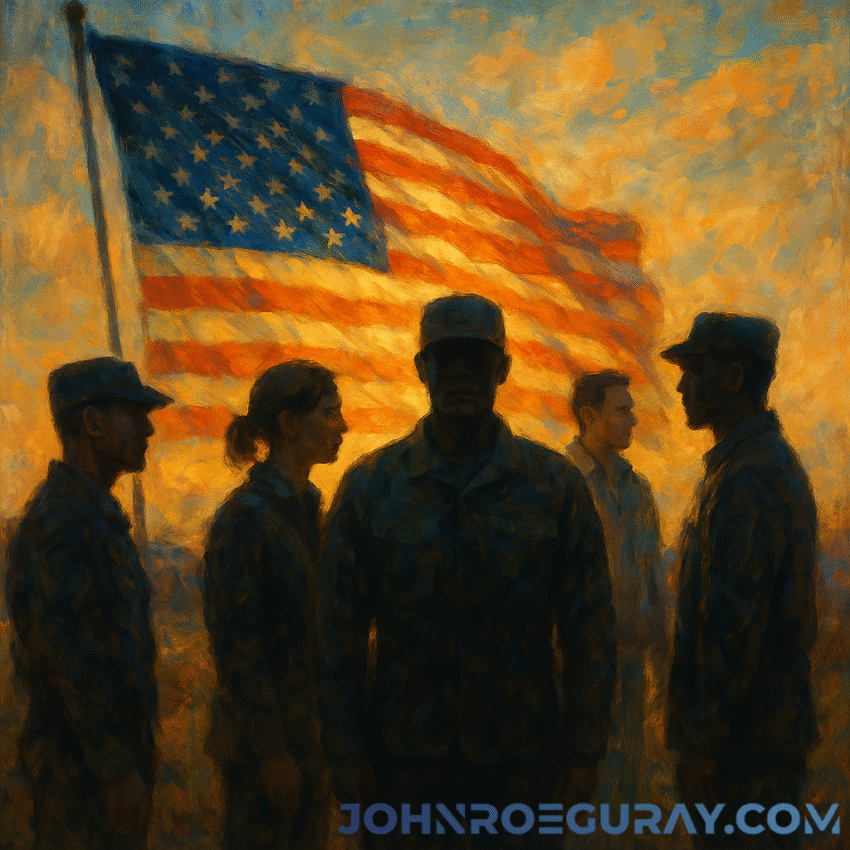As the nation observes Veterans Day, it pauses to honor the dedication and sacrifice of millions of individuals who served in the military. This solemn occasion, rooted in a history of valor and transition, serves not only as a tribute to military service but also as a reminder of the enduring responsibilities that society holds toward its veterans.
The Origins and Evolution of Veterans Day
Originally celebrated as Armistice Day to commemorate the end of World War I on November 11, 1918, the day evolved into Veterans Day in 1954 to honor all U.S. veterans, regardless of the war or conflict in which they served. It has since grown into a national reflection on the values of duty, sacrifice, and patriotism—principles that remain central to the American identity.
A Broader Significance: Political, Social, and Economic Dimensions
While Veterans Day is marked by parades, ceremonies, and patriotic gestures, its implications stretch deeper.
- Socially, it fosters awareness and empathy, creating bridges between the civilian population and the military community.
- Politically, it reinforces accountability among lawmakers and institutions tasked with caring for veterans post-service.
- Economically, veterans represent a crucial segment of the workforce. Their skills, leadership, and resilience contribute to innovation, yet they often face hurdles in employment, education, and financial stability.
Contemporary Challenges Facing Veterans in 2025
The veterans of today confront both enduring and emerging issues:
- Mental Health and Moral Injury: Post-traumatic stress, depression, and anxiety remain prevalent. In 2025, increased attention is being placed on moral injury and the invisible wounds of war, particularly among post-9/11 veterans.
- Healthcare Access and Staffing Shortages: The Department of Veterans Affairs continues to face systemic shortages in medical staff and mental health professionals, affecting care quality and response times.
- Employment and Economic Transition: Many veterans struggle to translate their military experience into civilian careers. Veteran unemployment and underemployment remain persistent despite workforce integration initiatives.
- Homelessness and Housing Instability: Over 30,000 veterans are estimated to experience homelessness in 2025. Affordable housing, addiction support, and mental health care remain critical areas of concern.
- Digital Inclusion: As more services move online, digital literacy and access to technology become increasingly vital for veterans, particularly older populations or those in rural areas.
Opportunities for Empowerment
Despite these challenges, 2025 presents unique opportunities to strengthen veteran support:
- Technological Innovation: Advances in telehealth, employment matching platforms, and mental health apps tailored for veterans are expanding.
- Community Engagement: Local programs, peer-led initiatives, and storytelling projects are creating meaningful opportunities for veterans to reconnect.
- Policy Reform: Legislative efforts are underway to modernize the VA’s benefits system, streamline disability compensation, and enhance workforce programs for transitioning service members.
Veterans Month 2025: Events, Exhibits, and Resources
Throughout November, numerous initiatives highlight veterans’ voices and advocate for their well-being:
- National Veterans Day Ceremony at Arlington: A moving tradition honoring the nation’s fallen and living heroes.
- Veterans History Project (Library of Congress): A growing archive of oral histories and personal narratives from veterans across all eras.
- Art and Storytelling Exhibits: From New York to Ohio, veterans are sharing their experiences through painting, photography, and film.
- Community Volunteering: Organizations like Team Rubicon, The Mission Continues, and Wounded Warrior Project welcome volunteers to support housing, career development, and health initiatives.
- Veteran-Owned Business Spotlights: November sees increased attention on small businesses run by veterans, encouraging consumers to “shop veteran” as a form of impact.
Actionable Ways to Support Veterans
Veterans Day is more than a date on the calendar; it is a call to action. Individuals, communities, and institutions can help by:
- Hiring and Mentoring Veterans: Creating pathways to employment through internships, skill certification, and tailored onboarding.
- Amplifying Veteran Voices: Supporting veteran-created media, art, and literature helps bridge understanding and foster healing.
- Donating or Volunteering: Contributions to organizations addressing homelessness, mental health, or veteran reintegration make tangible impacts.
- Advocating for Change: Contacting legislators about veteran-related bills ensures systemic progress and long-term improvements.
A Lasting Tribute: From Recognition to Action
Veterans Day 2025 serves as a timely reminder that appreciation must be matched with support. While ceremonies, flags, and patriotic speeches are meaningful symbols, veterans need year-round action—from mental health services to job opportunities and policy reform. Honoring veterans in 2025 means listening to their stories, addressing their needs, and ensuring that the freedoms they defended are reflected in the lives they return to.
This is lovingly dedicated to my paternal grandfather, Vicente Hernandez Guray, Sr. (1925-1986), a proud World War II veteran. His courage, service, and deep sense of history continue to inspire the values of duty, resilience, and honor that this piece hopes to reflect.


